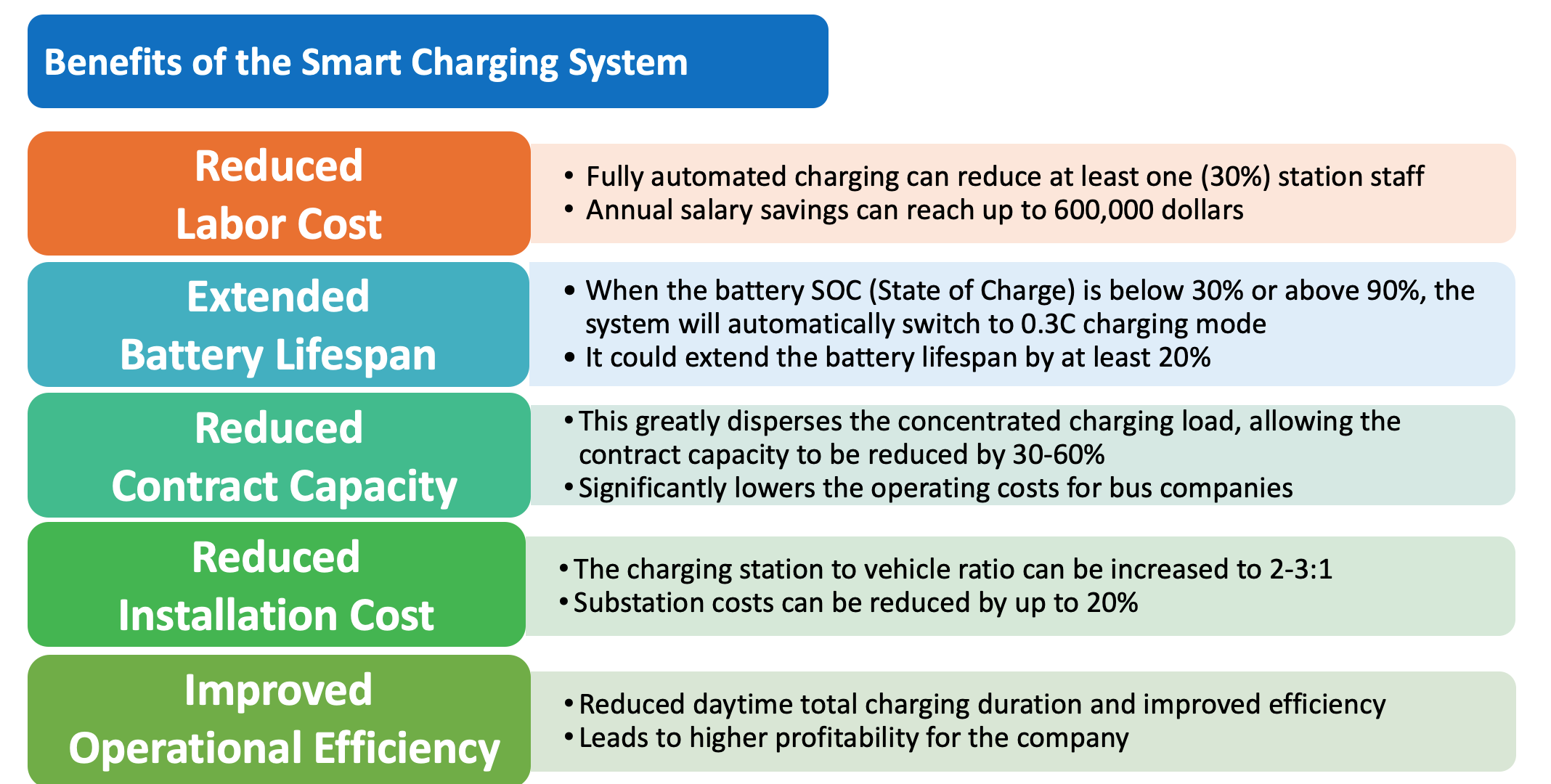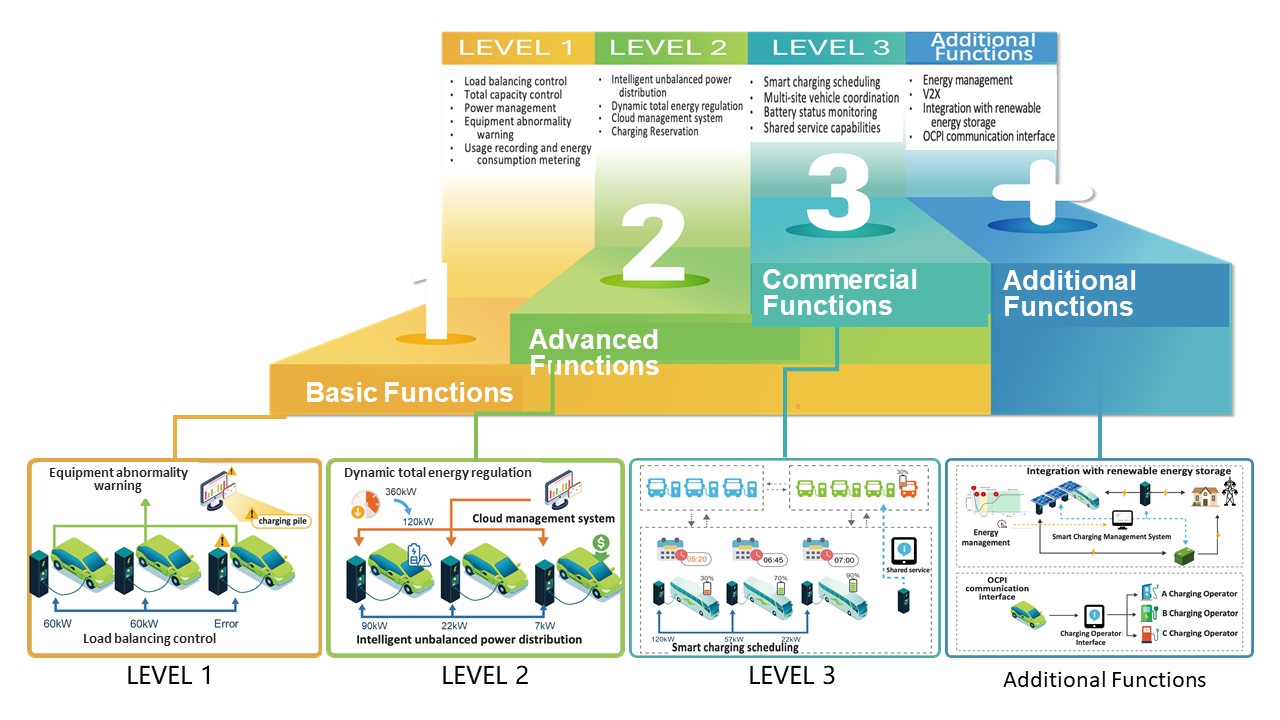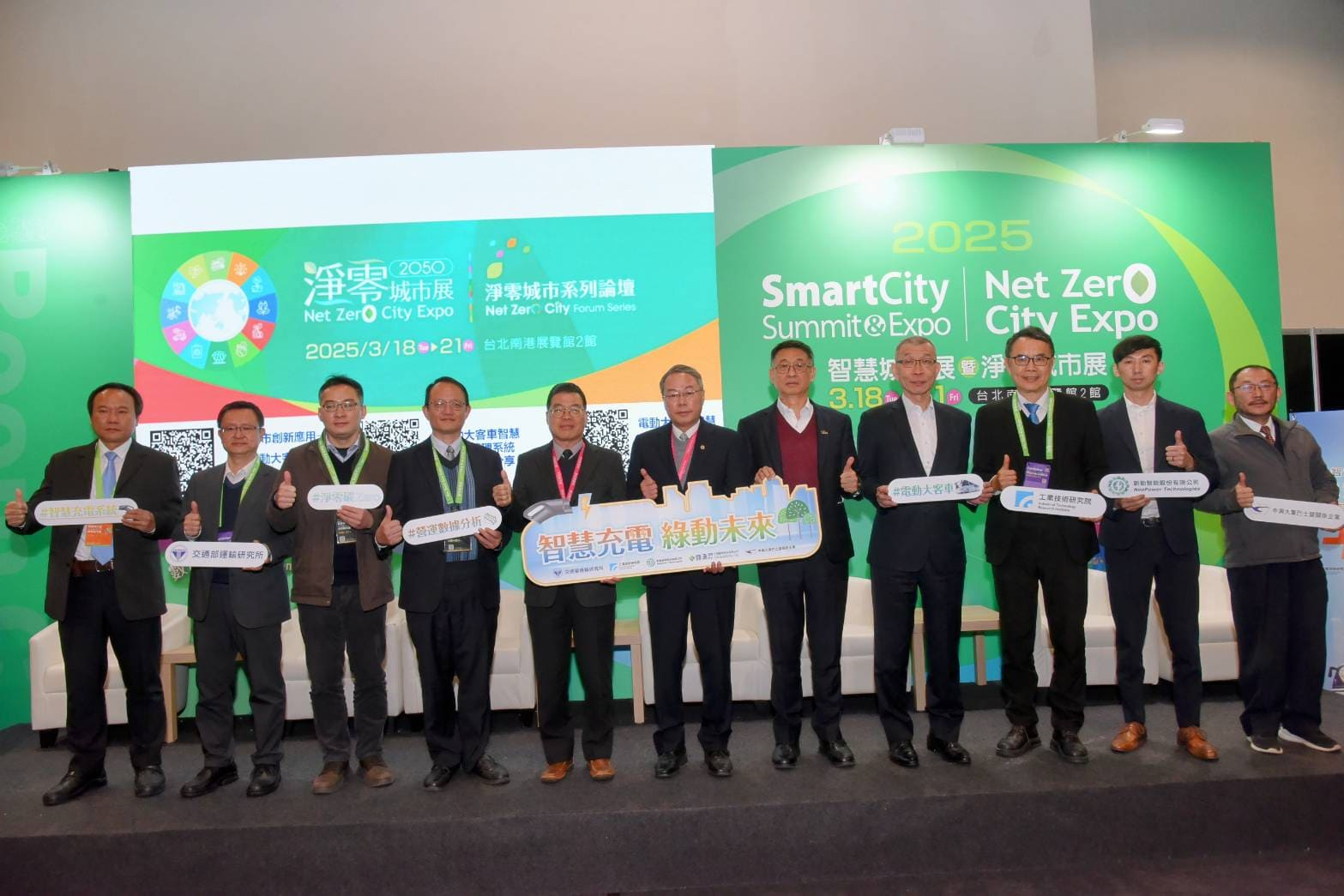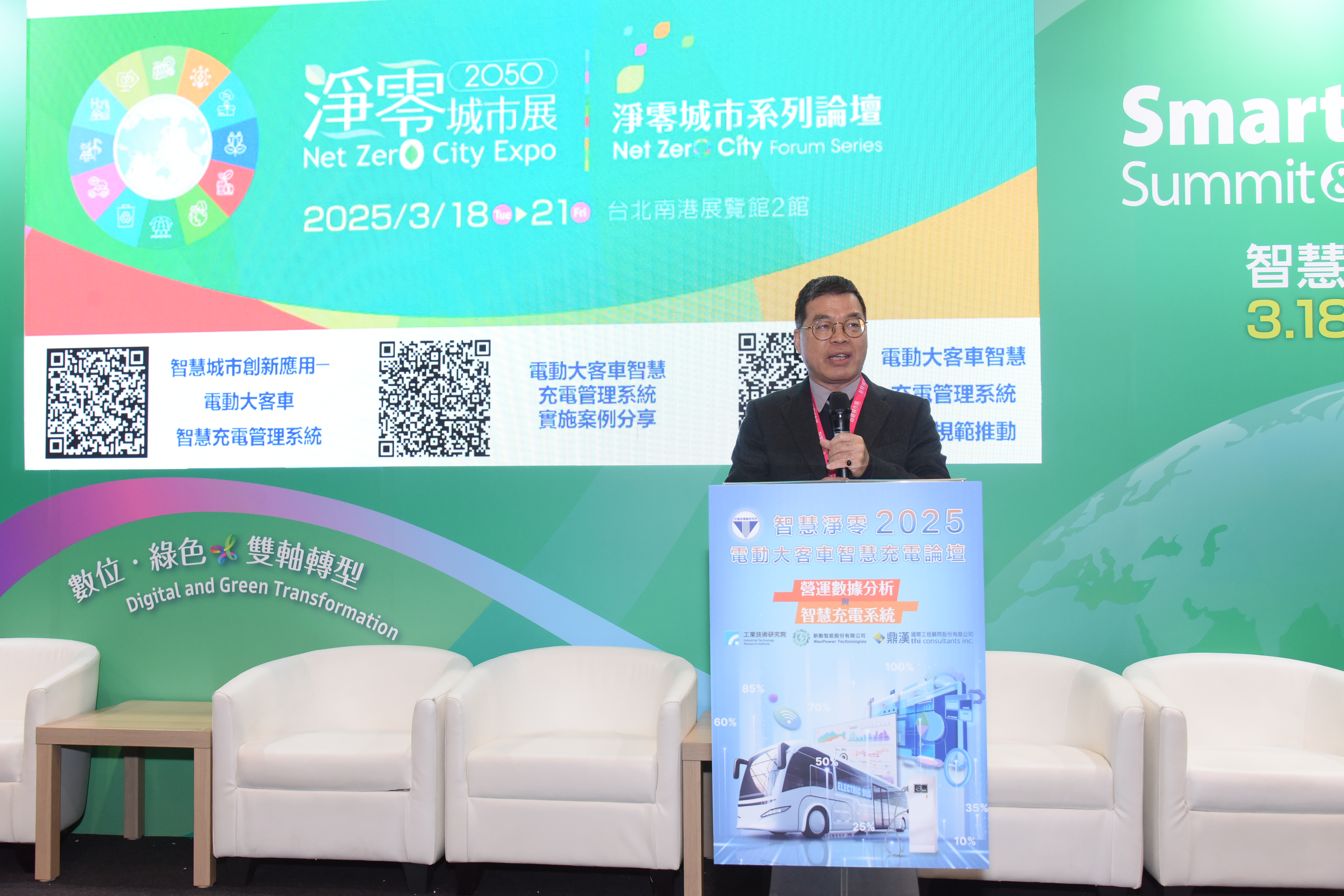The first keynote speech was delivered by Mr. Yi-Cheng Chang, Acting Director of the IOT, and it focused on the “Innovative Applications of Smart Cities – Smart Charging Management System for Electric Buses.” Then Mr. Nien-Tzu Chang, Secretary General of TEEFA, gave his speech on the topic of “Industry Standards of Smart Charging Management Systems for Electric Vehicles,” and then Mr. Chia-Wen Chan, General Manager of NeoPower Technologies Co., Ltd, gave his speech on the topic of “Case Study of Smart Charging Management Systems for Electric Buses.” After the speeches, the panel discussion of this forum recruited the three speakers and Mr. Ching-Hui Chen, Chief of Industrial Development Administration, Ministry of Economic Affairs (MOEA), Mr. Chien-wen Lee, Executive Director of The Federation of Highway and Intercity Bus Companies in Taiwan, Mr. Chun-Hong Chen, Deputy Chief of Highway Bureau, MOTC, also Mr. Wei-Guo Chou, Executive Director of Vehicle Safety Certification Center (VCSS), to have a comprehensive discussion to adding momentum for the promotion of the “Digital Transformation,” “Zero-Net Transformation,” and “Greening the Future” of the electric buses in Taiwan. The following is a summary of the discussion.
Since the beginning of 2012, IOT has cooperated with the Industrial Technology Research Institute (ITRI), THI Consultants Inc. and Neopower Technologies co., ltd. to organize the demonstration project of ”Smart Charging Management System for Electric Buses” and has successively set up several smart charging management system demonstration sites in the parking lot of Zhongxing Bus Company, Ltd. Through operation data collected from the project, it has the advantages have been proved reducing labor costs, extending battery life, reducing contract capacity, improving vehicle-to-pile ratios, reducing substation costs by more than 20%, and saving total charging time to improve operation scheduling efficiency. Based on the estimation of a small-scale station with three years of service, the cumulative cost savings over that period can reach approximately 1.8 million NT dollars(Fig 1).
IOT pointed out that the current state of the electric bus charging management system used by Taiwan’s passenger transport operators primarily involves level 1 “basic functions” of the intelligent charging management system, and only a few operators have introduced the intelligent charging management system with functions of Level 2 “not-even flow intelligent regulation” and above. To make the development of the electric bus and charging industry more progressive, IOT has prepared a draft of the smart charging subsidy application for the Highway Bureau MOTC, to promote, aiming to upgrade the charging management system of the bus operator’s stations to the “Level 3 Smart Charging Scheduling.” (Fig 2)It would help to increase the efficiency and stability of the electric bus fleet operation, while meeting the objectives of smart regulation through shift scheduling, real-time information, health monitoring, and shared services.

Fig 1 Electric Bus Smart Charging Management System Demonstration Project Field Demonstration Results and Benefits

Fig 2 Taiwan EV Energy Facility Alliance (TEEFA) Announced Field Classification of Smart Charging Management System for Electric Buses

Fig 3 Group photo for Distinguished Guests Attending the Conference

Fig 4 IOT Director General, Chi-Kuo Lin SPEECH

Fig 2 Taiwan EV Energy Facility Alliance (TEEFA) Announced Field Classification of Smart Charging Management System for Electric Buses

Fig 3 Group photo for Distinguished Guests Attending the Conference

Fig 4 IOT Director General, Chi-Kuo Lin SPEECH


